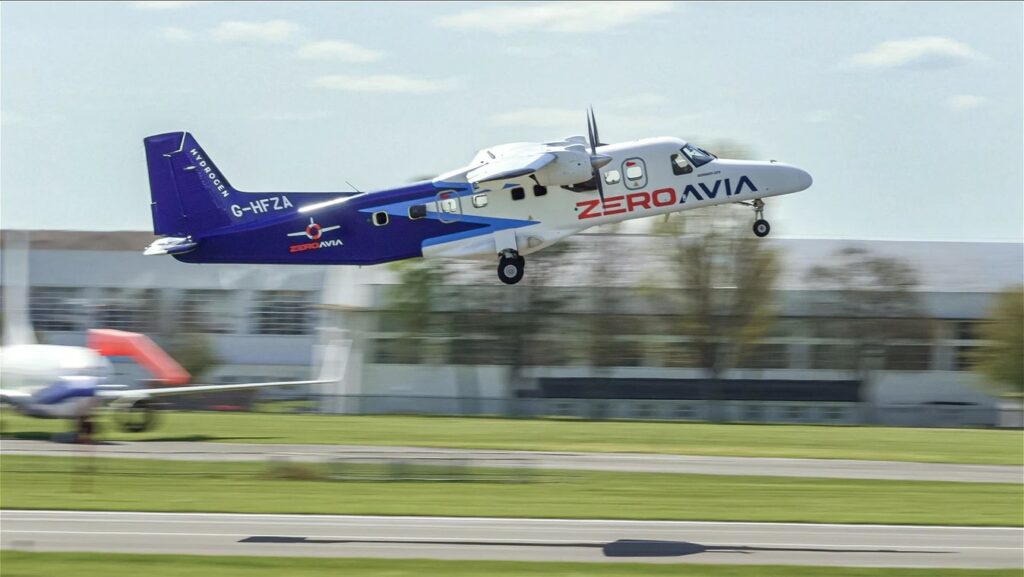ZeroAvia and Verne have signed a Memorandum of Understanding (MOU) to jointly explore the applications of cryo-compressed hydrogen (CcH2) for aircraft propulsion and refueling.
ZeroAvia, a trailblazer in zero-emission aviation, has dedicated its efforts to developing hydrogen-electric engines designed for diverse aircraft types. The primary goal is to provide an environmentally and economically viable solution to combat the escalating impact of climate change within the aviation industry. Aviation presently contributes ten percent of all U.S. transportation greenhouse gas (GHG) emissions and three percent of total U.S. GHG emissions, according to the Environmental Protection Agency.
On the other side of this innovative partnership is Verne, a startup specializing in hydrogen storage and refueling technologies. Verne focuses on harnessing the potential of cryo-compressed hydrogen for heavy-duty transportation. This technology involves storing gaseous hydrogen at cold temperatures, enhancing the fuel’s energy density and potentially extending the range of aircraft compared to traditional gaseous hydrogen (GH2) systems.
Verne’s analysis reveals that cryo-compressed hydrogen could achieve a remarkable 40 percent greater usable hydrogen density than liquid hydrogen and an astonishing 200 percent greater usable hydrogen density than the commonly used 350 bar gaseous hydrogen. The advantages extend beyond density, with the potential to reduce densification costs, refueling time, and dormancy time relative to liquid hydrogen (LH2) systems. Moreover, the technology might eliminate venting for pressure management, marking a significant stride in the eco-friendliness of hydrogen-powered aviation.
ZeroAvia and Verne’s collaboration is not limited to technology evaluation; it extends to assessing the global impact of scaling CcH2 storage and refueling infrastructure at airports. This is particularly critical as hydrogen-electric propulsion gains traction for larger aircraft. The duo is also actively working on a model for identifying initial airport locations in California.
Verne, backed by Amazon’s Climate Pledge Fund, Caterpillar Venture Capital, Collaborative Fund, and other major investors, has already made significant strides in hydrogen storage technology. The company has developed large hydrogen storage systems boasting 4 MWh of storage capacity. Their recent demonstration of a 1 MWh CcH2 storage prototype in collaboration with Lawrence Livermore National Laboratory underscores the potential of their approach.
ZeroAvia is not merely confined to theoretical advancements; the company is actively flight-testing a prototype of its ZA600 hydrogen-electric engine on a Dornier 228 aircraft at its UK base. Simultaneously, efforts are underway to retrofit a prototype of its ZA2000 onto a 76-seat Dash 8 400 aircraft in the U.S. These hydrogen-electric engines leverage hydrogen in fuel cells to generate electricity, resulting in water as the only emission.
